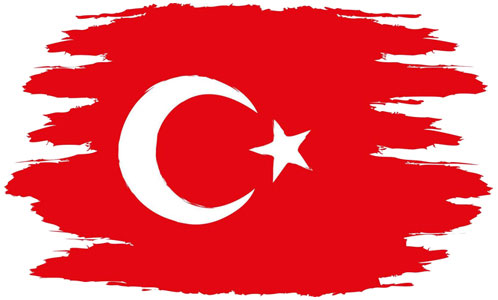An ugly face is hateful and a beautiful face is captivating. This passion and hatred is a kind of declaration of the inner position towards that ugliness and beauty. Human effort is always bound by this two-way tension. In the same way, we have a psychological judgment and an internal position
about the ugliness and beauty of "actions" or "states" of people. With the difference that judging the ugliness and beauty of "appearance" is easy, but the ugliness or beauty of people's behavior, condition, and personality is a far-reaching phenomenon.
The knowledge of ethics is the discussion of the ugliness and beauty of human spirit and behavior, and it is also extended to human desires and actions. This ugly and beautiful is called bad and good in ethics.
The concern of ethics is human growth and excellence. Morality and education require human beings to be beautiful and praiseworthy in all spheres of existence. The beauty of the character is acquired, unlike the beauty of the face. We must want and strive for good character and angelic behavior; And self-improvement is the same as "building in one's shell". Undoubtedly, in order to achieve this goal, we need knowledge such as intentions, obstacles, ways, methods, and tools to create transformation in ourselves. "Islamic ethics" includes topics like this.
Islamic ethics in the general approach of religion; It is the flourishing of nature and it is based on a special understanding of human beings. "Ethical anthropology" is evolutionary anthropology. That is, the human being moving and becoming is the subject of his investigation. Now, before dealing with the issues of ethics, we will briefly consider the place of ethics and moral education and its scope, then we will discuss the most important foundations of ethics, i.e., its anthropological basis and its teleological basis:

Ethics, excellence and human development
The place of ethics in the geometry of religion
The heavenly teachings of Islam consist of three main parts:
1. First part: Beliefs, a realistic and comprehensive description of the creation system by presenting the most important and influential elements that interpret the beginning and end of existence in a coherent system. These propositions are mainly related to human knowledge, awareness and beliefs. It is worth mentioning that acquiring or having a correct belief is one of the optional
actions or attributes of a human being, and moral judgment about it is valid because beliefs can be considered in two ways; Whenever there is a discussion about truth and falsity, correctness and incorrectness of the statement in terms of conformity and non-conformity with reality, a belief exploration has been carried out. However, if the moral correctness and incorrectness of this belief is examined as a voluntary action or a self-determined form and its necessity or hindrance to perfection and happiness (its goodness and badness) is considered, then an ethical exploration has been made. For this reason, moral books have discussed the value of faith in God, certainty and belief in the hereafter.
2. Second part: Ethics, a system of values and norms that man is obliged to adjust his actions and behavior based on and receive the direction of perfection and excellence in the form of moral dos and don'ts from it. These propositions tell about the effect of human actions and character on his happiness.
3. The third part: jurisprudence, in one part, it discusses the legal dos and don'ts, which was formed to regulate the
legal boundaries of social relations, and in the second part, it talks about the conditions of correct worship from a formal aspect, and explains the ritual forms and Performs religious rituals.

Human growth and excellence
ethics
Man is the only being who, by God's permission, has the authority to design his own personality and can determine his existential dimensions and position among other beings. A person's movement in the middle of the long path from low to high is a characteristic of man compared to other creatures of God. Man owes his good and bad qualities. He lives with them, thinks, judges, makes decisions and behaves with them, dies and is surrounded by these characteristics, and finally, his happiness or unhappiness is determined based on these characteristics.
The heavenly books have not neglected the serious matter of human movement towards happiness, they have presented the pattern and rule of this evolution.
The knowledge of ethics is dedicated to expressing the value attributes of verbs and optional attributes. Every moral proposition consists of a subject and a predicate. The subject of moral statement is optional. Because moral value is based on free will, and without the assumption of free will, there is no possibility of moral judgment. Sometimes these optional matters are also referred to as "powerful beings". Authority is either directly assigned to the discretionary matter (behavior) or indirectly (attributes and properties). The predicate of the moral proposition is one of the following four pairs of value concepts: good, bad, right, wrong, should and shouldn't, right and duty.
The predicate subject of documents
optional verb, optional good/bad adjective; true/false; should / shouldn't; It is a right/duty
An example of lying is false
Courage is good
Note: The statement "must be fair." It is also a moral proposition that the order of subject and predicate has been changed. The main form of this proposition is as follows; Justice is required.
Whenever a list of good and bad deeds as well as virtues and vices is provided, the image of a desirable human being has been determined. In fact, the set of moral propositions defines the system of preferences and the ultimate peak of human movement.
The scope of moral knowledge
The human relationship is formed in one of the following ways according to the party of the relationship; This relationship is either with the creator or with the creature, the relationship with the creature is either with oneself or with another; The other is either a human or a non-human being. Based on this, the science of ethics will include several areas; Servant ethics, individual ethics, social ethics, environmental ethics.
The ethics of servitude refers to norms and anomalies such as faith, fear, trust, disbelief, disobedience and distrust of God, which are related to the relationship between man and God. Individual ethics are moral values related to the individual lives of human beings and consider humans regardless of their relationship with others. Such as the virtues of patience, wisdom, and determination and the vices of gluttony, rashness, and braininess. It also refers to social ethics, the values and anti-values governing the relationship of an individual with other human beings; Like justice and kindness or envy and arrogance. Environmental ethics also expresses the value rulings governing
human relations with nature (plants, animals, pastures and forests, waters and the ecosystem in general and finally the biosphere).
Morality is the basis of happiness
Therefore, the main areas of ethical knowledge will be as follows:
The creator of the ethics of servitude
The values governing human relations with the non-creator of individual ethics
Non-self-conscious social ethics
Unconscious environmental ethics
It is also necessary to mention that Islamic ethics is the whole of faith ethics. In other words, all human behavior is a transaction with God, and man is never deprived of communication with God. Since human development depends on the knowledge of the constant presence of God, the moral man of Islam always considers God in his personal and social relationships, and his personal and social ethics also take the form of servitude. Islamic
culture has breathed the color of monotheism and divine spirit on all human relationships and has mixed faith and ethics.
It is obvious that the word social ethics in its conventional application refers to the relationship of one person with another person. However, we know that humans have the authority to influence the relationships that govern society and also the ability to play a role in history. Now,
in your opinion, can we consider moral duties towards the construction of society and relations between civil institutions and also towards human history and Future civilization spoke? If the answer is yes, what is your suggestion for determining the position of these topics in the divisions of ethics (individual, servitude, social, etc.)?
Moral education
"Ethical education" is the
process of internalizing moral values and the sustainable formation of human personality based on the characteristics of a perfect human being. "Ethical education" opens the path from the existing situation (the domain that is the origin of human movement) to the peak of perfection and guides a person in such a way that he can engrave the ideal image of a moral person in his existence. "Ethical education" is the objective realization of all teachings that the knowledge of "ethics" calls for. It can be said that "ethics" reveals the intentions and goals of human movement, while "moral education" reveals the flow rules and rules of human movement in that direction. In other words, ethics answers the question of the nature of values, and education answers the question of the quality of achieving it.
1. Anthropology
Since moral education means creating some kind of change and transformation and creating a moral person. It is necessary to know the face of a moral person before entering the discussions. Without knowing the characteristics and desirability of a moral person, it is not possible to plan to move towards it.
Moral identity and personality is the result of the combination of various cognitive, emotional and behavioral components that must be cultivated in the process of moral development.
human institution
Between 1914 and 1945, two great world wars broke out, the center of which was Europe. Millions of people were killed in these two great disasters. The excitement of this wildlife was calmed down
by the explosion of two nuclear bombs - which alone left nearly two hundred thousand victims. More than four decades of anxiety and fear had engulfed the world. At that time, the face of human blood was clearly revealed and it aroused astonishment and questioning. The discussion about human nature got a new freshness. In those circumstances, the theory of misidentification and the demonic nature of human nature could hardly be denied.
The discussion of "human nature" has a long history and may be considered the most important topic of anthropology. Various definitions of human nature have been presented and different positions have been adopted. Some have denied the existence of a single nature for humans, and some have considered it impossible to identify human nature without denying it. But those who believe that man has a single nature are faced with the question of whether man is inherently good or bad. This question is of special importance for "moral anthropology"; Ethics is concerned with the positive evolution of mankind. If we consider him as a demon, we lose the motivation for his moral education, or at least consider moral education as a kind of conflict with human nature.
Islam has a special view of humanity; Firstly, the theory of nature - which is one of the most important pillars of Islamic human knowledge - emphasizes the unique nature of man throughout history, and secondly, as Islam has a positive view of the world (in the sense of the victory and struggle of the forces of good over evil in the world), it It also evaluates
human beings under the influence of cognitive capacities and good tendencies and as a result positively.
Let's remember when the Almighty God said to the angels: "I will
place a successor on earth." The angels said: "Lord! Do you give shelter to someone who commits corruption and bloodshed? (If the purpose of the creation of this human being is worship) we will glorify you and sanctify you. The Lord said: "I know facts (about him) that you are unaware of."
In that divine council, there was talk about the institution of mankind. It is as if the angels saw only his bloody face in the flesh of man, and the Lord of man had an opinion of more dimensions than this. God's word was actually that "human institution" cannot be obtained with a superficial view. God had called and asked man to be his successor.

Cultivating high spiritual qualities in humans
The sublime structure of human existence
Maybe each of us has broken our promise and decision many times during our life due to laziness or laziness. Undoubtedly, every time after that, we have blamed and condemned ourselves. In these cases, we ourselves have decided, and we ourselves have violated the decision, and we have blamed ourselves. It is not possible to explain this contradictory situation except in the light of accepting a kind of duality in human existence; One commits an act and the other declares his disgust.
Areas and powers of the soul
The human soul is the essence of the kingdom that uses the body in its needs. Definitions such as "mind", "soul", "soul" and "heart", which are sometimes used for humans, are all names of the same soul.
The human soul has four main abilities and powers. The power of reason, which they
consider to be an angelic power, the power of anger (repulsion), which they consider to be the predator of the soul, the power of lust (attraction), which they consider to be an animal force, and the power of illusion, which they consider to be an evil force. Man has these four forces from the beginning of his natural appearance.
The function of rational power is to perceive the facts of affairs and distinguish between good and evil. A wise power seeks to create moderation in the country and prevent each of the powers from rebelling and breaking boundaries. Dominate the power of anger over lust and break its intensity and intensity, and discover and reject the devil's machinations with his penetrating insight and clairvoyance.
The power of fear or the power of mischief seeks to prepare a practical way of working and thinking of solutions and tricks to achieve the desires of the power of lust and anger. Lying and deception are also possible for mankind by this force.
The power of lust or the power of lust, which is called "animal soul", is the origin and source of desires and interests and pleasurable affairs. From the power of lust comes nothing but animal works such as gluttony and
sexual satisfaction. The benefit of libido is to preserve and continue the life of an individual and a kind of human being.
The power of anger or the power of anger, which is called "Sabaoi's soul", causes the actions of predators such as hatred, enmity, and abuse. Of course, the power of anger, in addition to eliminating harm and removing obstacles from the path of human life and growth, can break the fierceness of lustful and evil forces, and when they want to persist in lust and deception, they are under their control. because they do not obey reason easily, unlike anger, which obeys it easily and is disciplined by it.
These powers undergo changes according to age, and the more a person develops naturally, the more perfect these powers become in him. Muslim sages believe that in the process of
natural human development, the sensuality is activated before the faculty of anger and the faculty of anger is activated before the faculty of intellect.
The sages believe that all human virtues can be summed up in the four virtues of wisdom, courage, chastity and justice; Because these four virtues are obtained from adjusting each of these four forces and removing them from the limits of excess. Wisdom is the moderation of the power of theory and its refinement, courage is the moderation of the power of anger and its refinement, and chastity is the moderation and refinement of the sensuality. The departure of each of the forces from moderation is its tendency to extremes. In this sense, the main vices are eight. Chastity is between the two extremes and extremes of shame and humility. Courage is the balance between recklessness and fear.
Wisdom is the middle ground between courage and evil, and justice is the middle ground between oppression and injustice, a state that results from the moderation of all three faculties of wisdom, anger, and lust.
In fact, the adjustment of the three faculties of fear, lust and anger is the mastery of the intellect over them. If reason prevails over them and brings them under its management and policy, each of these powers will be in moderation and justice will emerge in the country. The appearance of justice in a person is equal to the appearance of all virtues, but if he cannot overcome them, they will overcome him and make him their employer; In this case, the inner face of man turns into an animal.
The Commander of the Faithful (AS) said:
"God created the angel only with reason and did not put anger and lust in him, and gave animals lust and anger and did not give him reason, but He clothed man with all of them. Therefore, if his lust and anger are subservient to his reason, he will come from the higher angels, because he has reached this rank despite the conflicts, and the fact that he does not disturb the angels.
moods
In the Qur'an and hadiths, three souls are proposed for man; Nafs is confident (calm), Nafs Luamah (reprimanding) and Nafs Amara (commanding) against evil and sin. It is as if every human being consists of several souls inside him. Of course, these three attributes are referred to according to the difference in the state of the soul. That is, if the rational faculty wins over the other three faculties and they obey it, due to the flow of the rational will and the complete moderation of human existence, tranquility and peace will be achieved. He did not achieve such a victory and was in a position of struggle and defense. Whenever the intellect fails due to the commission of a sin, and after that the self is blamed and regretted, it is called "Lavameh" and if the intellect is without defense. Surrendered and defeated, it is called "Bassful Amara", because when he lost the power of reason and became obedient to the evil forces without defense, nothing remained but an unbridled and blind will of rapacity and lust.

Cultivation of self and development of human ethics
Human capacities and abilities
The human soul, which is weak, simple and colorless at the beginning of birth, acquires various abilities over time and takes a specific form over time. These constant capabilities of the soul are called "queens". Every queen is an attribute for a person's soul that makes it easier and faster to perform an action.
A) Some properties are "physical" and appear mostly in body parts. Acquiring these skills is considered "physical training". Such as the skill of walking, swimming, riding and other types of physical sports.
b) Some other properties are "mental" capabilities, and acquiring them is considered "mind training". Like the queen of concentration, accuracy, memorization, recall, transmission speed, analytical and critical power, thinking, planning, and all kinds of intellectual sports.
c) Another category of properties are the "spiritual" and "heart" attributes of humans, which are discussed in
moral books. The virtuous queen of courage, generosity, meekness, humility, self-control, fortitude and seriousness and the vice queen of hypocrisy, cunning, hypocrisy and cruelty are of this type. The study of moral virtues is considered as "training the soul" and trying to gain a healthy heart.
d) There are other complex properties that are the result of several different abilities in a person's existence; For example, the queen of fast reading, which is the product of combining the ability of the eye and the concentration of the mind. Most arts and professions such as embroidery, cooking, sewing, carpentry, and blacksmithing are included in this group.
Queen benefits
Each queen is a useful and effective tool at the disposal of humans, which can be used with little effort and in a short amount of time. Writing a page of content for a beginner child requires extensive physical and intellectual effort and a long time. The product of his work is not worth much. But the person who has acquired the queen of calligraphy creates
a valuable and exquisite tableau with limited time, little effort and little attention. It is the same way to maintain presence of mind and presence of heart in prayer for ordinary people compared to self-made people who have studied the queen of presence or humility. Therefore, the work that seems difficult, laborious or impossible at the beginning is not only possible with the queen's education, but becomes easy and smooth over time.
"Acceleration", "facilitation", "enhancement of action" and "continuity" are valuable achievements of the queen, which invites and encourages every wise and purposeful person
to study the fixed abilities of the self.
The principles of the Queen's education
What should be done to get property? This is a question that comes to mind after knowing the many benefits of queen.
The following principles guide us to answer this question:
1- Feasibility: It is possible for people of any age and situation to study or change property; Although it is much easier and more attainable in youth. Imam Khomeini (may Allah be pleased with him) says in this regard: "As long as a human being is in this world, due to the fact that he is under changes and possessions, he transforms every queen into other queens." can do, and saying that such and such a character is innate and instinctive and cannot be changed, is baseless and has no scientific basis. And this matter, in addition to the fact that it is a proof in philosophy and it is also a conscience, its great witness is that in the Pure Sharia, all corrupt morals are prohibited and their treatment is ordered, and all good morals are commanded. An order has also been received
for their education.2- Gradual and time-consuming: The emergence of a queen requires time and gradualness, and no trait appears and disappears in a person all at once. The birth and death of queens, like all movements and developments in the material world, happen over time.
Just as the physical growth of a person requires many years and does not happen overnight, his intellectual growth and spiritual excellence cannot be done overnight. If a two-year-old child asks us for an instruction that he will immediately grow up by following, what do we tell him? Can he be advised to eat a large amount of food? This question is as wrong as the question of how to obtain the
"presence of the heart" in prayer and the expectation of achieving it within a few days. Or the question of how to master a science or a skill and expect to learn it in a short period of time.
These misplaced expectations go back to our incomplete understanding of the concept of "time". Our incomplete view of the special role of "time" in the events of the world leads to hasty plans that bring nothing but failure, frustration and despair and do not lead to any results.
3- Repetition and continuity: The creation of the queen is due to the repetition of the action. To win the calligraphy queen, you have to write a lot, to win the driving queen, you have to drive. Repetition of an action makes that action familiar to the fabric of our existence and leads to the creation of a queen. "Doing good is better than filling." A person who wants to achieve an art, profession, skill or attribute must experience its examples one after another. To acquire an attribute, only wishing or praying is not enough, multiple practical actions are a
necessary condition for learning these abilities.
Every time we experience an action, we are one step closer to the queen. The queen is born from the density of these experiences and actions.
Commander of the Faithful (AS) says:
Yazdad's deeds are powerful and I am weak in Yazdad's deeds.
Whoever acts, his strength increases, and whoever fails to act, his weakness and incapacity increases.
4- Definite and imperceptible effect of the action: Although every action somehow plays a role in the creation of the queen, its effect is usually not visible or felt. If it is necessary to write a thousand pages for the creation of the queen of calligraphy, each page will travel only one thousandth of the way, and therefore, no significant change will be observed after writing one page. A traveler who intends to visit the shrine of the 8th Imam (a.s.) if he takes only one step forward, he will not notice that he is approaching the holy Mashhad, but in any case, he is really close. An hour in the night of Tahjud and prayers with the Merciful
of the World, definitely has an effect on being close to God, but its invisible effect can only be understood if it is connected to dozens of similar ones. Therefore, we should not expect that a night prayer will bring the earth and time under the umbrella of our possession, open our vision of the truth between the kingdoms and bring us to the position of certainty, just as we should not expect to lay a brick of a lofty palace. appear in front of us!
This rule also includes corrupt properties; Writing every time is a malpractice exercise. Although its effect is not observed. Every breach of promise and covenant breaking is a step towards immaturity, although its effect is not noticeable, and every sin is like a brick in the formation of a high wall of rebellion and the queen of debauchery, and a small invisible dot on the white screen of the heart. The Prophet of God (PBUH) said:
Believers, if your sins are a black spot in your heart, then patience, forgiveness, and forgiveness will make me perfect, and this is your blessing.
Whenever a believer commits a sin, a black spot appears in his heart, so if he repents and stops, his heart will be cleansed from that spot, and if he continues, that spot will increase.
Every time overeating due to attention and awareness, the inner face of a human being is slightly similar to a quadruped. Every act of anger and unworthy anger, petrifies a little bit of predatory and wolfishness in our being... and a person is trapped in the same "face" that he has created for himself.
One of the most beautiful tricks of Satan is his dual treatment of our good and bad deeds. Whenever a person commits a bad deed, for example, he commits a lie or a forbidden look, the devil makes the effect of that deed appear very small in the human soul and pretends as if nothing happened after the deed and no change in his life. His soul has not appeared. This temptation makes a person easily forgive his ugly act and not avoid doing it again.
On the other hand, every time a person does a good deed, the devil draws its effect on his soul very big and significant and pretends that after doing the deed, the condition of the person has become very favorable and admirable. This temptation causes a person to be surprised and feel deprived and stop moving.
Then, if it becomes clear to him with clues and proofs that his small action did not have such a great effect, he will be disappointed and disillusioned due to the false expectation that Satan has created from that action, he will stop repeating the action and evolve. Either he ignores his reformation or he denies high human authorities in comparison with his efforts.
In fact, when faced with the ugly actions of humans, the devil makes the third proposition (the definite effect of the action) faint and understated, and the fourth proposition (the imperceptibility of the effect of each action) is very prominent and large, and on the contrary, when faced with the action Nik denies the fourth statement and strongly affirms and confirms the third statement, and this shows the force and mastery of Iblis in his technique.
5- The difficulty of studying the queen and the need for perseverance: the time of the birth of the queen is difficult for a person; A person who does not have a queen uses a lot of energy, spends a lot of attention and concentration, delays a considerable amount of time, but does not get much of a product, especially since the beginning of the movement to acquire a power is often unsuccessful.
And failure comes with it, and all this is enough to make a weak person fed up and pull him out from under the heavy burden of action, unless a powerful agent forces him to persevere or pours abundant love and affection on him along this path.
6- Accuracy in the stages of obtaining a queen: the more carefully and carefully the stages of a queen's formation are carried out, the greater its contribution to the emergence of that queen; For example, the pages that are written with cheerfulness and patience have a greater effect in creating the art of calligraphy and are considered a bigger step.
The Messenger of God (pbuh) said: "Allah loves a servant, if he acts wisely, and he said: "If someone acts wisely, then he acts wisely."
God loves a servant who, whenever he does something, makes it stable and strong", "Whenever one of you does something, he should do it properly and solidly.
With the expansion of capabilities, it becomes easy for humans to acquire new possessions and get used to new spaces.
7- Planning and taking advantage of other people's experiences: thinking and planning improves the queen during her education. Knowing about the formulas that govern that ability, using the experience of others, consulting and having a teacher, shortens the duration of the Queen's education and reduces the ups and downs and mistakes to the minimum amount.
9- Necessity of exploiting the queen after obtaining it: After the formation of the queen in the existence of a person,
it is also up to the human to use it and benefit from its effects and benefits. It is possible for someone to have a dawn queen, but he was deprived of the blessings of dawn due to laziness and laziness. Or someone has a calligraphy queen but does not use it and writes badly. Although calligraphy is easy for calligraphers, it requires as much effort and effort. If he hesitates to spend this little power, he has left his queen procrastinating and useless, and if he is careless and impatient in writing the paintings, it is not unlikely that with the passage of time and repetition of the action, carelessness and haste It becomes a habit in him. In addition to benefiting from the results of the work, the constant use of the capabilities creates industriousness, hard work, activity, endurance and vitality in a person and removes laziness, laziness and boredom.
8- Moderation and prudence: The Messenger of God (PBUH) said: O people,
take from our actions, and you are not satisfied.
Take as much action as you can.

High moral qualities and human development
The practical plan to acquire the queen must be in proportion to the person's current ability, and the human ability is very low at the beginning of doing any task. Duty and imposition on oneself - or on another - if it exceeds the limit of endurance, it will not be converted into action or will not continue and in many cases, it will cause harm, just like the beginning of weight lifting exercise with weights. Heavy loads will damage the spine or at least destroy the desire to continue it. For this reason, it is necessary to increase the number of weights in proportion to the increase of a person's ability and "gradually" so that it does not cause negative consequences. Recommendation gradually has two faces:
First: the negative face that "don't overburden yourself at any stage."
Second:
a positive face that "whenever the self's ability and capability increases, increase the task, that is, the task should not be less than the ability."
The combination of these two propositions is a recommendation for "moderation" in planning. The negative statement refers to the consequences that were expressed, and the positive statement refers to the necessity of "continuous movement" and the promotion of the queen and its strengthening.
Natural and environmental valuation system
By turning a piece of wood, they make objects that are very beautiful and expensive. Undoubtedly, no one can stop admiring this art. But if we sit in the position of that piece of wood, can we be satisfied with the situation? No, because the wood was a living being and if it was to continue its growth path, its future would not be this. We are facing a challenge here; That wood has really progressed, but it cannot be said that what it has achieved now is the continuation of its wooden life. Now consider this event "valuable" or "worthless"?
The gardener also has a hand in the life of the seedling. In order to reach his destination, he must
consider the requirements, needs, abilities and conditions of each plant. One of them needs a lot of light, the other needs less, one needs a lot of water, the other needs less, one needs cool air, the other warm, one needs an open environment, the other doesn't,... in fact, the gardener sits at the feet of each flower and learns about himself. "What do you want?" he asks.
The work of the lathe is "industry" and the work of the gardener is "education". There are many differences between these two. In the industry, there is talk of making what we want. We kill the seedling and make cuts on it, we apply substances that are not made by its nature and... until it becomes something that we like. Of course, it is also beautiful. But
when it comes to "education" we have a completely different position. The gardener also has a goal for his work, but the goal of the gardener is the same as the goal of the flower. The gardener wants the flower to flourish. This thin seedling has talents in its heart that if given the opportunity and help, it will show them and create a hundred kinds of surprises. The point of departure of the creative thought of the craftsman is outside the body of the sapling, it starts from that point and reaches the wood, and with the help of its taste and smell, it likes another face and situation for it, and with the help of its own skillful hands, that face gives him But the gardener starts from the center of his nature and from the heart of his talents and capabilities and steps towards an ideal point defined by his nature, and his original desire is the flourishing and existential expansion of that seedling. The craftsman pours his art on the face of the wood, but the gardener removes the veil from the art of wood. A lathe creates, but a gardener grows. He speaks his words, but the gardener conveys the words of the flower to our ears. Which of these two is "valuable" or "more valuable"?
Valuation means determining the price of something and finding out whether it is liked or disliked. Since measuring the value of everything requires a standard, we can talk about a valuation system. One can ask where to get these systematic criteria? Regarding the example that was proposed, we ask at which point should we stand and based on what system should we judge the value of the gardener's work, outside the heart of the seedling or inside it?
If we look from the outside, we see the sapling as wood and have nothing to do with its talents. Its favorable future is determined by the creative mind and skillful hands of the artist. Suppose we are going to pull out a statue of a person from the heart of that tree, in that case, the sprouting and boasting of that seedling, even if it is successful and wonderful from the gardener's point of view, will not be attractive to us. But if we look from the inside, it is only valuable that the seedling can show how much it can grow and bear fruit. The difference between these two views gives us two valuation systems. One can be called the environmental valuation system and the other organic or natural valuation system.
It is the same in human life. After opening his eyes to the world, man gradually becomes familiar with the value system that surrounds him; Among those around him, things are considered pleasant and things are considered unpleasant. As he learns the language, he also learns this value system and uses it to interact with the environment.
Based on his nature, the child has his own preferences and choices that form a value system for him, and how much he does not create an environment with a value system. For example,
one of the behaviors that has a positive organismic value for a child is playing with mud and dirt. When a child plays with dirt, he feels actuality and meaning. But the mother may not agree with his behavior and blame him.
The child learns that playing with mud and dirt, which he experiences as a natural task, is something that is in serious conflict with the mother's values and causes him to lose the mother's love and positive attention. In most cases, the child abandons the playground, abandons the organismic value, and chooses the mother's attention.
Undoubtedly, every society has its own value system. rather, each family forms a value system for itself, which sometimes does not build with the value system of the society and puts the child in conflict with the society; On the one hand, the child is away from his
natural system and on the other hand, he is invited to a conflicting environmental system.
Nature-oriented and culture-oriented education
It is noteworthy that this value system comes from a society that is not well-dressed. Humans have organized their small and sometimes wrong likes and desires, which are usually mixed with ignorance, complexes and grudges, in the form of a group of preferences and turned them into culture. If we add the desires of the rich and the powerful to this chaotic pattern, the difficulty will increase. Wealth is the source of value in society.
In this way, two trends in
human education have been discussed since ancient times. One is nature-oriented education and the other is culture-oriented education. The followers of naturalistic education considered his natural choices as the source of valuing and determining the changes that should take place in the life and conscience of a human being, and the followers of culturalist education did not believe in such a valuation system due to their special anthropological foundations, and culture They knew the main source of educational decisions. They believed that in the upbringing of children, one should emphasize on his citizenship and raise him as a compatible citizen. Such a person will be useful to himself and society.
Among the schools of psychology, humanists should be considered serious supporters of naturalistic education. The approach of humanism, as the third wave of scientific
psychology, had serious differences with the two approaches of psychoanalysis and behaviorism and brought about serious changes in the view of humans. In this school, instead of scientific prediction and human control, empathy, understanding and freedom have been brought to him so that he can be more successful in increasing his awareness of his world and can make better choices and shape his life. The main goal is human self-actualization. For this reason, humanistic psychology firmly follows the organismic valuation system and is particularly interested in reviving this valuation system.
According to humanistic psychologists, we start life in a state where we know what we want and what we don't want and what is good for us and what is bad. In other words, the process of organism valuation in babies is very efficient and based on correctness. The baby's values
are very clear and his wants and don'ts are clear. Experiences that maintain and advance the "flourishing of the organism" are given priority, and experiences that do not contribute to the flourishing of the organism are rejected. The valuation criterion is nothing but the development of the organism and "self".
Many of us lose touch with the organismic valuation process as we reach adulthood. We become inflexible, mistrustful and dissatisfied with our values and often spend life in a fruitless and anxious and defensive manner. In short, internalizing the values of others alienates us from our own organismic valuing process.
Islamic teachings are also in favor of naturalistic education with a positive attitude towards human beings. Of course, with a deep
understanding of human nature and adopting appropriate methods for the flourishing of this gifted institution, which has significant differences with other theories.

Individual life and success depend on moral and spiritual refinement
Decision making and preference system
All humans are thinkers; That is, they think and reach something, but it is rare to
find a person who thinks logically, disciplined, methodical and based on specific principles. All skills, including the skill of logical thinking, are considered to be a kind of mental or psycho-physical strength and therefore require training and practice.
All people have "sir" meaning
behavior in life, but not all of them have "sir" meaning style, pattern, model and specific method in behavior. Their decisions are more tasteful and based on emotions. They also feel confused and vacillating and may wish for a fixed and specific personality. Life cycle is the exact reflection of decision logic. A person who has a certain life style certainly has a certain logic to make decisions in various and numerous issues of his life.
It is not desirable to follow human decisions from emotions and fluctuating states that are strongly influenced by environmental values. It is necessary to look for a solid and defensible military.
A man named Wabsa bin Mabad came to the service of the Holy Prophet (PBUH) and said, "I have a question." The Prophet said, do you want to hear your answer? He said yes. The Prophet said, "Have you come to ask me the meaning of righteousness, goodness, sin, and ugliness?" He replied: Yes, that is my question. The Prophet put his hand on his chest and said:
Or waabisa al-bir, what did you assure the soul, and al-bir, what did you assure the chest, and the sin did not tremble in the chest, and jal in the heart, and Don't let people down and let them down
Goodness is that which calms your soul and heart, and sin is that which is burning in your chest and cannot be accepted in your soul. (Ask the
realistic opinion from your heart) even if the experts say otherwise.
If a thought enters your heart that causes constipation, distress, and constriction of your soul, know that it is evil and harmful, and if something crosses your mind and creates some kind of openness and comfort in your heart, know that it is divine and causes you to flourish.
Human nature tends towards goodness. It is neither malicious nor indifferent. Therefore, a healthy heart is always the source of man's fatwa, and it shows the way to happiness until it sits on this pedestal, but if it is pulled down from this level and becomes a slave to whims and desires, it creates misguidance. A person has a nature. Human nature is sensual and pleasure-seeking, and his nature is right-seeking and justice-seeking. Whoever dominates his nature and fights against the desires of the soul will become the owner of his soul, otherwise he will be defeated by the soul and trapped by his dark nature. My mind is a prisoner under the air of Amir.
A pure nature and a healthy heart can be compared to a healthy digestive system, which naturally rejects poisoned food when it first encounters it. For the first time, if a human child tells a lie, he will face the reaction of his healthy nature. Reddening of the face, stammering and sweating show this unnatural filth. This valuation system can be accessed with a clean heart. You can discover the good and the bad, the ugly and the beautiful by paying attention to decorating the inside. That piety of Allah will make Lakm Furqana
It is necessary to mention this point at the end that this method of decision and preference is related to the place where there are no known criteria and clear criteria, but if there is a decisive Islamic or intellectual criterion, it should be acted on.
Source: Pegah Hozha, 1387, No. 239, Mohammad Nouri - Mohammad Reza Fallah quoted from Humanities and Cultural Studies Research Institute.
Dear Visitor; Please take a look at the list of 50 most visited websites in the world wide web: YouTube, Facebook, google, translate, gmail, weather, amazon, Instagram, cricbuzz, Hotmail, wordle, satta king, twitter, yahoo, yandex, sarkari result, Netflix, google maps, yahoo mail, roblox, whatsapp, NBA, BBC news, outlook, pinterest, flipkart, eBay, omegle, live score, tiktok, canva, ipl, premier league, hava durumu, ibomma, walmart, twitch, ikea, shein, linkedin, home depot, e devlet, lottery, snaptik, cricket, serie a, nfl, spotify, fox news, amazon prime; There is no book publishing related or project management website in this list. We are working hard to bring these important issues to the center of concentration of societies. Please introduce us via social media, share our website with others and help us to make our world a better place to live. Best Regards.


















Write your review